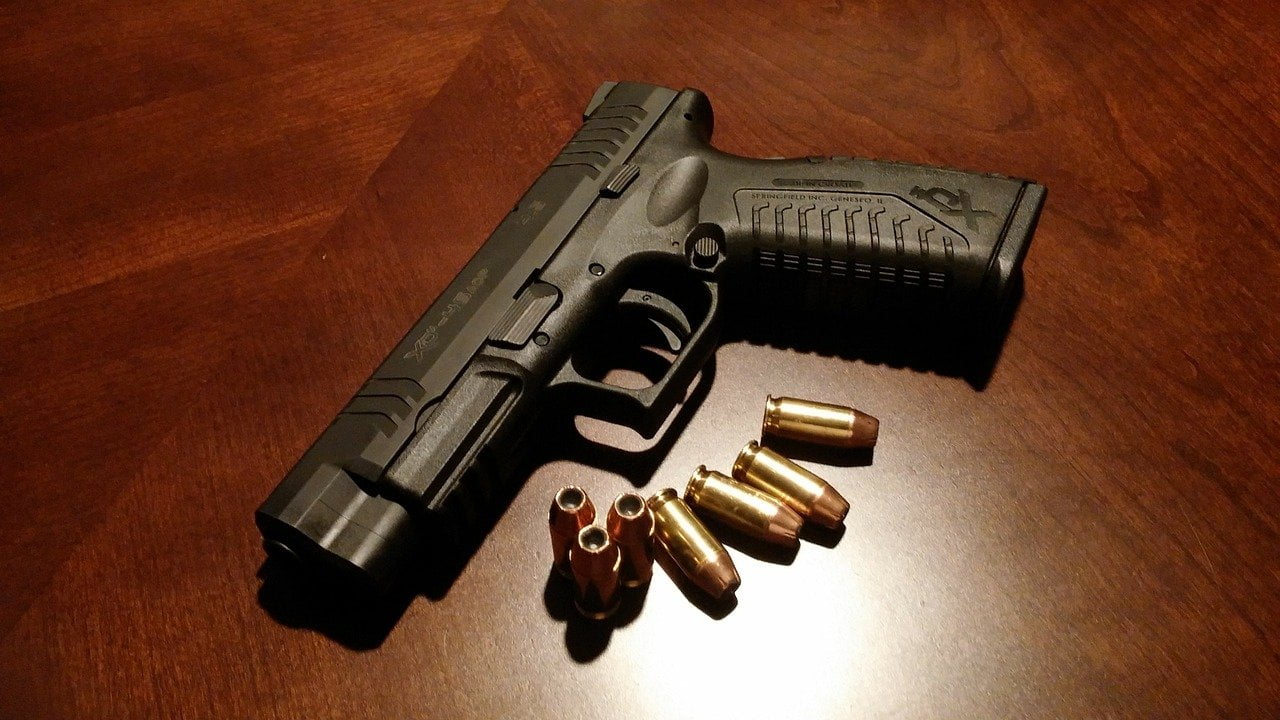High Court May Adopt Abortion Standard For Gun-Carry Cases; Government May Not “Unreasonably Burden” This Constitutional Right
Q3 2021 hedge fund letters, conferences and more
Applying Abortion Standard For Gun-Carry Cases
WASHINGTON, D.C. (November 4, 2021) - Questions and comments from a majority of the justices suggest that New York's gun control law, which requires law abiding adults who wish to carry firearms for protection to obtain a permit by showing "proper cause" (i.e., an actual self-defense need) for doing so goes too far and is therefore unconstitutional, but at the same time acknowledge that some limits can constitutionally be placed on gun possession in certain sensitive areas or situations.
One standard which might be considered is the one best known for determining if a restriction on abortion is unconstitutional, although it has also been used in other contexts. An abortion law is unconstitutional if it "unreasonably burdens" (sometimes “unreasonable interferes with") the exercise of a constitutional right, suggests public interest law professor John Banzhaf, who has been involved in several constitutional cases.
Thus, while requiring a permit - especially where the standards for issuance seem vague and fraught with unnecessary discretion - to carry a firearm anywhere, including clearly dangerous areas (e.g. a crime ridden neighborhood) or dangerous situations (carrying large sums of money at night) clearly burdens any right to use a gun in self defense, prohibiting such carrying in only certain sensitive locations (e.g. bars) or certain situations (during a large public demonstration) clearly does not.
A Ban On Guns In Bars
Indeed, notes Banzhaf, bars are already strictly regulated, the tenancy for persons who have been drinking to engage in reckless and/or dangerous behavior is well known, people remain in bars for only brief periods of time, and there are always others (including bartenders as well as patrons) whose presence would tend to deter any attack serious enough to warrant the use of a gun in self defense.
So a ban on guns in bars would seem not to place an unreasonable burden on a person's right to carry a gun in self defense, as New York's all inclusive ban apparently does. The same could of course be said for hospitals, government buildings, and many other places.
Moreover, notes Banzhaf, even if the Supreme Court holds that the Second Amendment provides very broad protection for gun owners, it only applies to governmental bodies, not private businesses and owners of property. So, regardless of what standard or test the Supreme Court might adopt, it would not be unconstitutional for individual owners of bars, and of virtually all other private enterprises, to ban guns if they decide it is appropriate.
This also means, suggests the professor, that governments might be able to use tax and other incentives to encourage certain owners of public accommodations such as bars, restaurants, shopping malls, private schools and hospitals, etc. to ban guns on their premises.
Presumably the U.S. would remain free to ban guns on commercial airline flights, since its ability to ban far less lethal objects (e.g., small knives and even knitting needles) has been upheld.
But a different result might apply if a government sought to ban the carrying of guns by all those using public sidewalks, or those who travel in their cars, since that would seriously (and presumably unreasonably) burden that right since many places to which a citizen might wish to travel may be dangerous enough to require a gun for self defense.
This is especially true and important for those who because of gender, physical size, age, or disability might be less able to defend themselves otherwise without a firearm.
No Restrictions Are Constitutionally Permissible
So, if the Supreme Court does strike down this all-encompassing New York law, it is unlikely to rule that no restrictions are constitutionally permissible, since several justices spoke of the need to restrict the carrying of firearms in certain sensitive areas or situations.
But it is equally unlikely that the Court would, in such an opinion, attempt to provide a list of such sensitive situations in which gun carrying could constitutionally be limited.
Instead, suggests Banzhaf, it is more likely that the Court would adopt a standard or test, and leave the work of applying it in various situations to the lower courts - as they have done with regard to other fundamental rights: e.g., to free speech, to the practice of religion, to be free of unreasonable searches, to be Mirandized, etc.
If so, the "unreasonably burdened" test, whose contours have been at least partially defined by court decisions, is probably as good as any other standard or test, suggests the law professor, who helped create at least one new constitutional standard.













